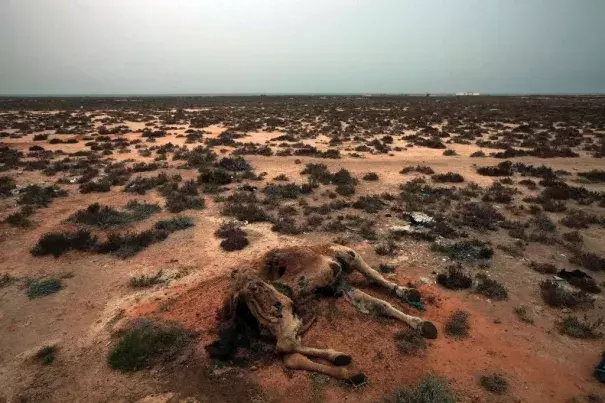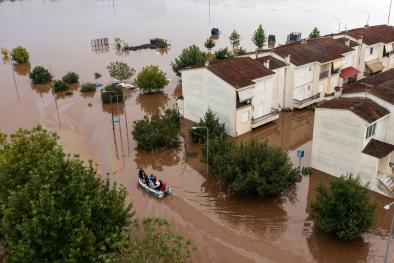'We Are Thirsty' Say Tunisians As Drought Creates Tensions

Struggling with extremism and economic woes, Tunisia now faces another menace: persistent drought across several regions that is creating new social tensions and threatening farming, a pillar of the economy.
Farmland is too parched to cultivate crops and rural protesters have tried disrupting water supplies to the capital, while one legislator is calling for a "thirst revolt."
A lack of rain, combined with years of bad resource management, has left reservoirs and dams at exceptionally low levels that could lead to a "catastrophic situation," said Saad Seddik, who was agriculture minister until last month.
...
Most of Tunisia's water goes to farming, and drought-related agricultural losses are estimated at 2 billion dinars ($905 million) this year, according to the Tunisian Agriculture and Fishing Union. The grain industry alone is expected to lose 793 million dinars ($359 million) for the 2015/2016 season, it said...
A tomato and potato farmer in Bkalta in the Monastir region, Anis Zouita, normally plants this time of year but fears he won't be able to irrigate. That could lead to a shortage of produce and higher prices for consumers.
"We are stuck. We need water for this agricultural season," he said.
He says climate change, and the lack of a long-term government water strategy for this arid country on the edge of the Sahara, are to blame. Prolonged droughts are among many extreme weather phenomena that climate scientists say are becoming more frequent because of man-made carbon dioxide pollution.
The World Bank warned in 2009 that Tunisia was among countries in the region facing water resource risks. Tunisia has long had water issues, but what's unusual this time is that regions across the country, from north to south, are being hit.
The drought is also worsening social tensions, already simmering because of chronic unemployment
Related Content



